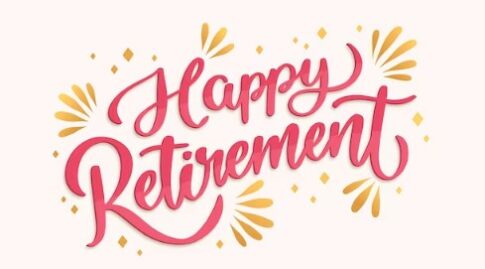“Age–that period of life in which we compound for the vices that we still cherish by reviling those that we no longer have the enterprise to commit.”
–Ambrose Bierce

Advisors have been spewing warnings for years that the Baby Boomer generation wasn’t saving enough money for retirement and that when that day came, they wouldn’t have enough to meet their living expenses. Even as recently as 2010, studies were showing that nearly half of Baby Boomers were not expected to have enough money to live on in retirement. Because the Boomer generation didn’t have enough to retire on, they’d continue to work, creating logjams in companies for younger workers looking to move up and thereby increasing the unemployment rate due to fewer job openings.
So far, the early results of Boomer retirement show that this is not happening. Unemployment is still high, but it’s not because Boomers aren’t retiring. A recent study showed that, indeed, even if they are not financially ready, the Boomers are mentally and physically ready to retire, and so, once Social Security payments kick in, they’re taking the plunge into retirement anyway.
How are they doing it, then, if they don’t have enough savings?

The early indications are that they are simply cutting back on the standard of living. Another study cited in the aforementioned article says that the average 401(k) fund balance for those 65 and older was about $163,000; this doesn’t account for other savings and investment accounts but is probably indicative that balances aren’t as high as would be needed to sustainably live solely off of investments.
Let’s look a little deeper and find out if they’re really suffering deprivation.
Let’s assume that the average balance of $163,000 in 401(k)s was matched by $163,000 in other investments – an assumption, by the way, which is probably overly aggressive, as more people who are eligible, on average, participate in 401(k) plans than in IRAs. In fact, $4.5 trillion is invested in defined contribution plans – 401(k)s, 403(b)s, and 457 plans, and $4.9 trillion is invested in IRAs, despite universal eligibility to contribute to IRAs. So, for the sake of argument, the average investment and savings balance of the Boomer generation upon retirement is $326,000. Let’s further assume that there is a safe withdrawal rate of 4% – not a universally safe assumption, by the way – and that the same person is getting the average Social Security payment of $1,230 a month.
What does this person get as an income to live on? $2,316.67. A married couple would be roughly twice that, or $4,633.34. The Social Security payment, on average, equals an annuity which is, roughly, the same as the amount saved and invested in our example.
Seems posh enough, right? In the beginning of retirement, the amount that a retired couple in this example makes is probably enough to live an average lifestyle. There are many working couples who do not make that much money per month, and they seem to do fine. Where do the problems lie? There are two issues that this hypothetical couple is going to face.
- Only Social Security is indexed to inflation. So, as the couple gets older, only about half of the income is going to rise with inflation. The remainder will not. So, over time, the purchasing power of the income will erode. It will not erode as slowly as if there was no Social Security, but it will erode. Add in healthcare costs which rise with age and rise at a greater rate of inflation, and the standard of living may decline rapidly. Even with 3% inflation eroding the purchasing power of the investment withdrawals, the same couple will, in 20 years, have the purchasing power of $3,641.85 in today’s dollars, a 21.4% decrease in purchasing power.
- Survivor Social Security payments may decrease upon death of the spouse. If the widow or widower is under full retirement age, then he or she may not receive the full benefit. Additionally, some pension benefits (which were not discussed in the example above) may not have a survivor benefit.
However, the potential future of a decreased standard of living doesn’t seem to be dissuading the first group of Baby Boomers who have reached retirement age. According to one of the studies cited in the article, there are two distinct groups. In the first group are the people who have retired, and the main reason they cite for retiring is that they reached the retirement age and wanted to retire. Then again, for those who were still working, a third of the respondents said that they were working because they had to – they needed the income to live, and had to delay retirement.
If you are at retirement age and can’t fathom working another day, but don’t have an enormous amount saved up, what can you do? Here are a couple of ideas:
- Write out a detailed expense budget and then aggressively cut non-necessary expenses. There’s a real difference between wants and needs, and when it comes to making a choice between want and food, then you can quickly determine the difference.
- Pay off any debts that you have. Interest payments on debt are a silent killer to your income, and when you’re retired, you won’t have additional income to service that debt. You don’t want to go to bed every night wondering if you’re going to keep your house because you can’t service a debt.
- Consider part-time work, particularly if the employer will offer healthcare benefits. The additional income, and, particularly, the reduction of expenses because healthcare is covered could be the difference between making it and running out of money.
- Go shopping early for assisted care facilities to negotiate discounts. If you can secure a seat early and pay cash for it, then both sides benefit. The facility gets a financial boost, and you don’t have to worry if you’ll be able to move into an assisted care facility when you need to.
What if you’re not of retirement age and worried that your nest egg is too small?
- Don’t panic!
- Set up an automatic contribution plan to your employer-sponsored retirement account or to an IRA. If you’re 50 or older, take advantage of catch-up contributions.
- Get control of your expenses. Start to reel in your lifestyle if your investments and Social Security aren’t going to match your current standard of living. You don’t want to go cold turkey on day one of retirement.
- Consider getting extra work or gaining extra skills to justify a higher paycheck. The more you earn now, the more you can save and invest so that you don’t have to work later on.
If you can, be in control of your retirement, rather than having unfortunate circumstances forced upon you.
Are you worried or confident about your retirement? Tell us what you think in the comments below!
Author Profile
- John Davis is a nationally recognized expert on credit reporting, credit scoring, and identity theft. He has written four books about his expertise in the field and has been featured extensively in numerous media outlets such as The Wall Street Journal, The Washington Post, CNN, CBS News, CNBC, Fox Business, and many more. With over 20 years of experience helping consumers understand their credit and identity protection rights, John is passionate about empowering people to take control of their finances. He works with financial institutions to develop consumer-friendly policies that promote financial literacy and responsible borrowing habits.
Latest entries
 Low Income GrantsSeptember 25, 2023How to Get a Free Government Phone: A Step-by-Step Guide
Low Income GrantsSeptember 25, 2023How to Get a Free Government Phone: A Step-by-Step Guide Low Income GrantsSeptember 25, 2023Dental Charities That Help With Dental Costs
Low Income GrantsSeptember 25, 2023Dental Charities That Help With Dental Costs Low Income GrantsSeptember 25, 2023Low-Cost Hearing Aids for Seniors: A Comprehensive Guide
Low Income GrantsSeptember 25, 2023Low-Cost Hearing Aids for Seniors: A Comprehensive Guide Low Income GrantsSeptember 25, 2023Second Chance Apartments that Accept Evictions: A Comprehensive Guide
Low Income GrantsSeptember 25, 2023Second Chance Apartments that Accept Evictions: A Comprehensive Guide

